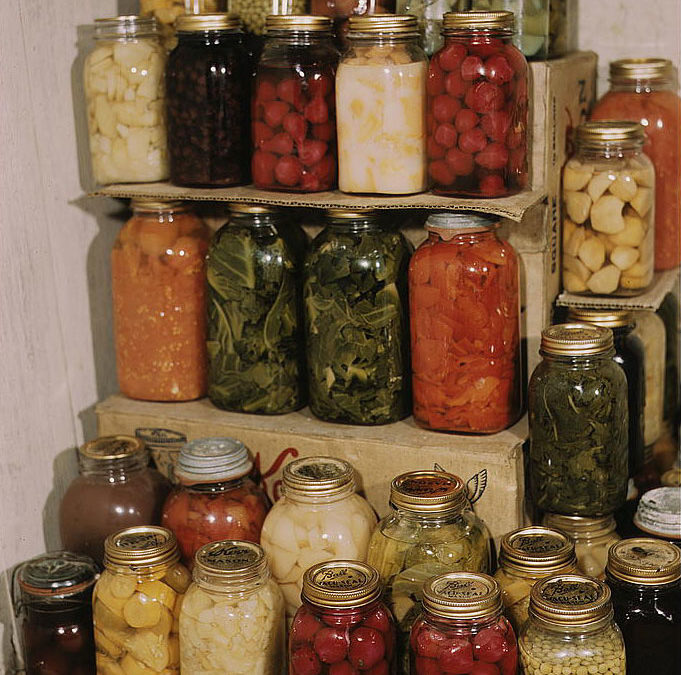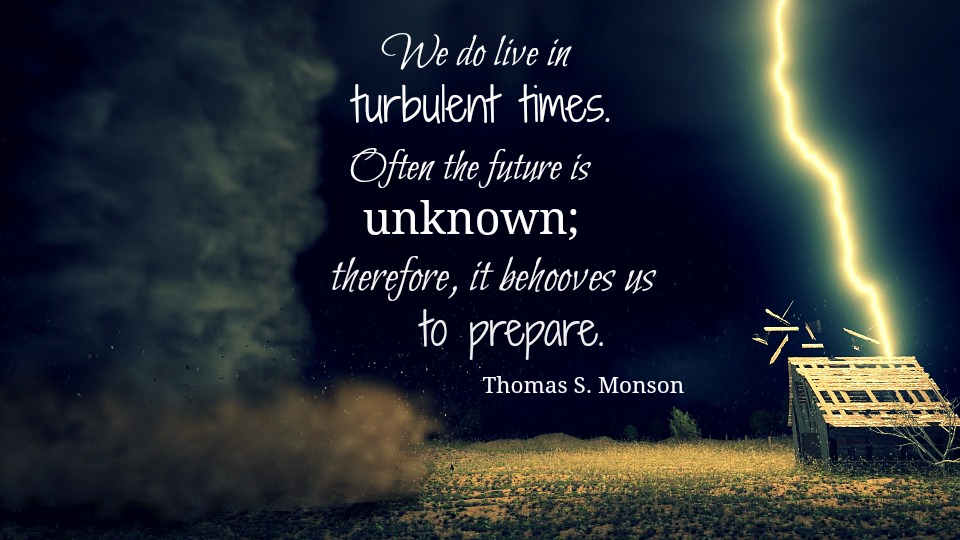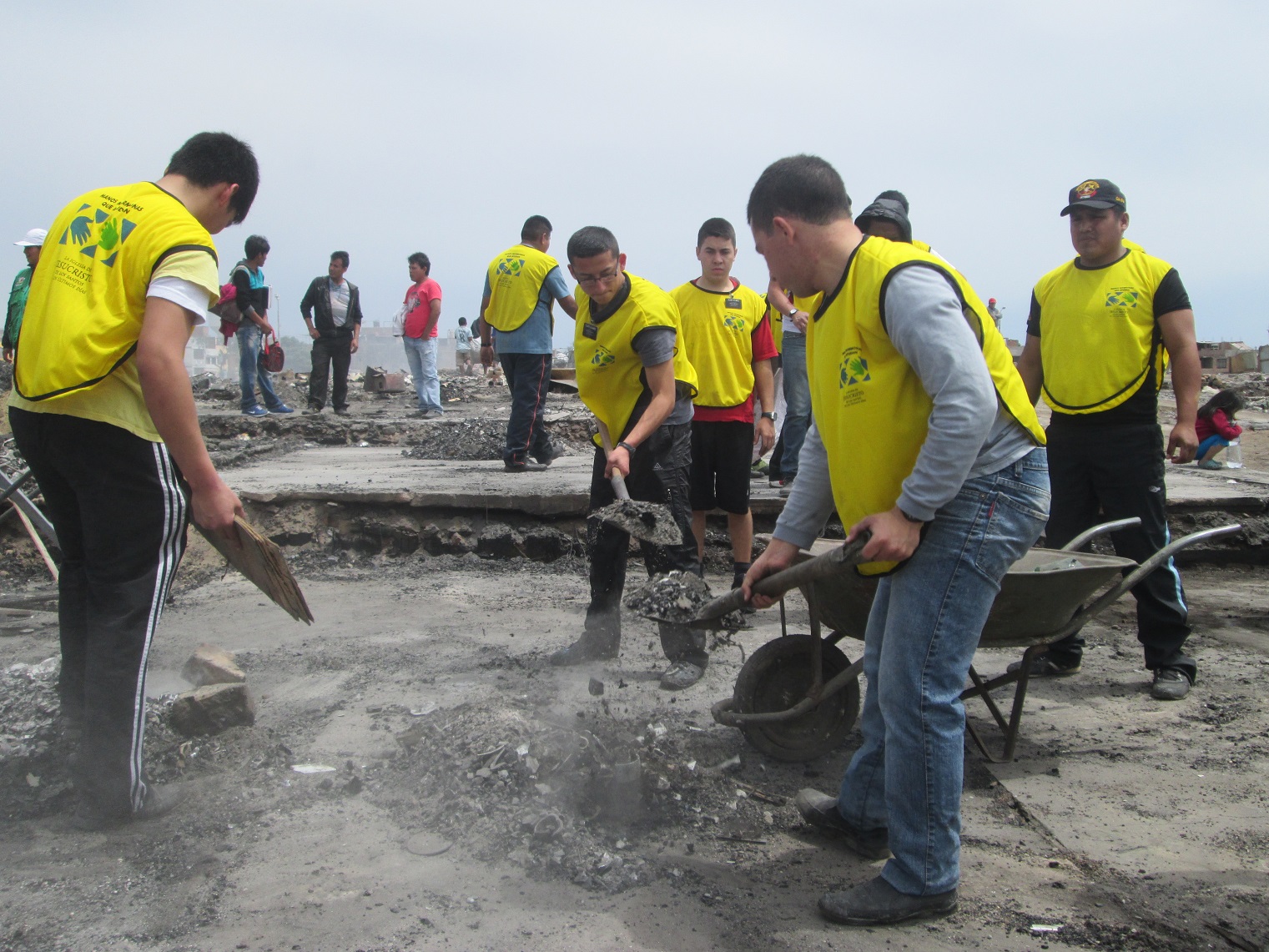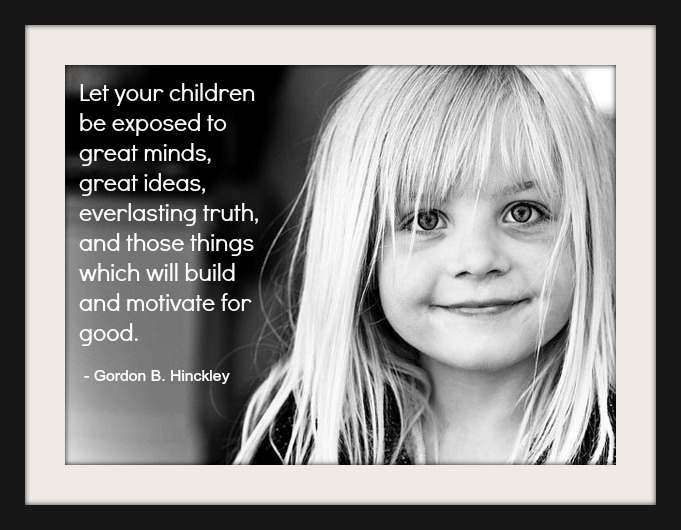Mormons are sometimes lumped into the category of doomsday preppers because of their beliefs on preparedness. But does The Church of Jesus Christ of Latter-day Saints really teach its members to prepare for the end of the world? Some sort of apocalyptic, catastrophic event? The answer is no. And yes, sort of.
Let me explain. President Thomas S. Monson taught,
We do live in turbulent times. Often the future is unknown; therefore, it behooves us to prepare for uncertainties.
Latter-day Saints believe in being prepared for emergencies physically, spiritually and financially. Part of spiritual preparedness is understanding the times in which we are living. But what we are really preparing ourselves for is whatever the Lord would have us do to help others. Sometimes it’s a big thing, sometimes it’s small. But the Lord will use those who are prepared as instruments in His hands. So how do we do this?
For What are we Preparing?
The first thing to note is why we are preparing ourselves. Elder Jeffrey R. Holland said:
I want to speak to you in the context of ongoing anxiety in the world and some of the challenges we face. Since September 11, 2001, we have been made more fearful and have been more alarmed by international events and the almost wholesale new use of the word terror. I know that many of you have wondered in your hearts what all of this means regarding the end of the world and your life in it. Many have asked, “Is this the hour of the Second Coming of the Savior and all that is prophesied surrounding that event?” …
As far as the timing of the triumphant, publicly witnessed Second Coming and its earthshaking events, I do not know when that will happen. No one knows. The Savior said that even the angels in heaven would not know (see Matthew 24:36).
We should watch for the signs, we should live as faithfully as we possibly can, and we should share the gospel with everyone so that blessings and protections will be available to all. But we must not be paralyzed just because that event and the events surrounding it are ahead of us somewhere. We cannot stop living life. Indeed, we should live life more fully than we have ever lived it.
If we aren’t worried about the Second Coming or the Apocalypse, then what’s the big deal? For what are we preparing? President Gordon B. Hinckley said:
I do not hesitate to say that this old world is no stranger to calamities and catastrophes. Those of us who read and believe the scriptures are aware of the warnings of prophets concerning catastrophes that have come to pass and are yet to come to pass. …
What we have experienced in the past was all foretold, and the end is not yet. Just as there have been calamities in the past, we expect more in the future. What do we do?
Someone has said it was not raining when Noah built the ark. But he built it, and the rains came. The Lord has said, “If ye are prepared ye shall not fear” (Doctrine & Covenants 38:30).
Although the end of the world is not yet, there are still hurricanes, floods, wars—all manner of disasters, natural or otherwise—in the world. And how can we help others if we aren’t taking care of ourselves and our families? Elder L. Tom Perry taught:
The Lord does help when we go to Him in times of need, especially when we are committed to His work and respond to His will. But the Lord only helps those who are willing to help themselves. He expects His children to be self-reliant to the degree they can be.
Brigham Young instructed the Saints, “Instead of searching after what the Lord is going to do for us, let us inquire what we can do for ourselves.” (Discourses of Brigham Young, sel. John A. Widtsoe, Salt Lake City: Deseret Book Co., 1978, p. 293.)
So, we aren’t preparing for the end of the world. We’re preparing to live in the world now—and to be able to weather every storm that comes our way.
Physical Preparedness—Filling our Storehouses
Physical preparedness really is gathering everything physical that we would need in an emergency or times of disaster. Bishop Keith B. McMullin taught:
A cardinal principle of the gospel is to prepare for the day of scarcity. Work, industry, frugality are part of the royal order of life.
Often we think of this as having a year’s supply of food. I learned this winter that it’s more than this. We live in a valley in the mountains of Idaho, and power can go out for an extended period of time. This winter, our power did go out—and we were told to prepare for the power to be out for days. I had been lax in making sure that we had our emergency supplies like batteries, flashlights and lanterns. I thought that I was doing fine on food storage. But I learned quickly that it’s difficult to cook dry beans when you don’t have water or a crockpot. So my food supply was inadequate for the emergency in which I found myself. Luckily, the store was still open. Not so fortunately, I was caught in the mad rush of the unprepared at both of the grocery stores in town. And because I had to buy so many things at once, it was an expensive lesson. It’s so much easier on the wallet when you can buy a few things here and there and catch them when they’re on sale.
But in another situation, many years ago, our family was hit with another setback for which we were not prepared—and we couldn’t get ourselves out of it so easily. But we had friends who had prepared, and were willing to share with us in our time of need. It was then that I realized sometimes we store up food and other supplies for ourselves, and sometimes we store up food and supplies to share with those in need. Our job is just to be ready.
Financial Preparedness—Saving for a Rainy Day
Financial preparedness really goes hand in hand with physical preparedness. President Thomas S. Monson said,
Many more people could ride out the storm-tossed waves in their economic lives if they had their year’s supply of food … and were debt-free. Today we find that many have followed this counsel in reverse: they have at least a year’s supply of debt and are food-free. [“That Noble Gift—Love at Home,” Church News, May 12, 2001, 7.]
Financial freedom is so important to our individual and family freedom. Elder Perry taught:
Independence and self-reliance are critical to our spiritual and temporal growth. Whenever we get into situations which threaten our self-reliance, we will find our freedoms threatened as well. If we increase our dependence on anything or anyone except the Lord, we will find an immediate decrease in our freedom to act. …
We live in a time of rapid change. Governments are rising and falling. Industries are blooming and then all too soon becoming obsolete. New discoveries in science are soon overshadowed by new findings. Unless we are continuously expanding our understanding and vision, we, too, will become out-of-date.
President Hinckley said:
We have been counseled again and again concerning self-reliance, concerning debt, concerning thrift. So many of our people are heavily in debt for things that are not entirely necessary. When I was a young man, my father counseled me to build a modest home, sufficient for the needs of my family, and make it beautiful and attractive and pleasant and secure. He counseled me to pay off the mortgage as quickly as I could so that, come what may, there would be a roof over the heads of my wife and children. I was reared on that kind of doctrine. I urge you as members of this Church to get free of debt where possible and to have a little laid aside against a rainy day.
We cannot provide against every contingency. But we can provide against many contingencies.
The bottom line is that we need to live within our means. As one TV host says, “It’s math, not magic.” Either you have the money to buy something or you don’t. Not everyone can pay cash for a house, a car, or education. But we can be wise in how much we spend. Latter-day Saints believe that paying a full and honest tithe is an important part of financial freedom. Elder Robert D. Hales taught,
The foundation of provident living is the law of the tithe. The primary purpose of this law is to help us develop faith in our Heavenly Father and His Son, Jesus Christ. Tithing helps us overcome our desires for the things of this world and willingly make sacrifices for others. Tithing is the great equitable law, for no matter how rich or poor we are, all of us pay the same one-tenth of our increase annually (see Doctrine & Covenants 119:4), and all of us receive blessings so great “that there shall not be room enough to receive [them]” (Malachi 3:10).
Mormons also believe in paying a fast offering. One Sunday a month, usually the first Sunday of the month, Latter-day Saints fast for two consecutive meals, and then donate the money they would have spent on those meals as the fast offerings of the Church. Again, financial preparedness is about more than just taking care of ourselves and our families. It’s also about being in a position to help others in their times of need.
Spiritual Preparedness
Spiritual preparedness is perhaps the most important of all. President Henry B. Eyring said,
Most of us have thought about how to prepare for storms. … One reaction is to ask, “How can I be prepared?” And there is a rush to buy and put away whatever people think they might need for the day they might face such calamities.
But there is another even more important preparation we must make for tests that are certain to come to each of us. That preparation must be started far in advance because it takes time. What we will need then can’t be bought. It can’t be borrowed. It doesn’t store well. And it has to have been used regularly and recently.
What is it that we will need in our day of testing and trial? President Eyring said,
What we will need in our day of testing is a spiritual preparation. It is to have developed faith in Jesus Christ so powerful that we can pass the test of life upon which everything for us in eternity depends. That test is part of the purpose God had for us in the Creation. …
So, the great test of life is to see whether we will hearken to and obey God’s commands in the midst of the storms of life. It is not to endure storms, but to choose the right while they rage. And the tragedy of life is to fail in that test and so fail to qualify to return in glory to our heavenly home.
Spiritual preparation is how we prepare ourselves to face the world—with all of the goodness and all of the evil—with hope instead of fear. Elder Richard G. Scott taught,
You have a choice. You can wring your hands and be consumed with concern for the future or choose to use the counsel the Lord has given to live with peace and happiness in a world awash with evil. If you choose to concentrate on the dark side, this is what you will see. …
Now the brighter side. Despite pockets of evil, the world overall is majestically beautiful, filled with many good and sincere people. God has provided a way to live in this world and not be contaminated by the degrading pressures evil agents spread throughout it. You can live a virtuous, productive, righteous life by following the plan of protection created by your Father in Heaven: His plan of happiness. It is contained in the scriptures and in the inspired declarations of His prophets. …
Spiritual preparedness is only found as we turn to God and trust in Him. It is found as we study the scriptures, attend church, and pray. It can be found wherever people live gospel principles and worship God in sincerity and with real intent.
Being Prepared To Help Others
Mormons believe that preparedness begins with yourself and your family but doesn’t end there. Once we have what we need, then it’s time to share—whether physical necessities, financial means or spiritual teachings. President Eyring taught,
Our Heavenly Father hears the prayers of His children across the earth pleading for food to eat, for clothes to cover their bodies, and for the dignity that would come from being able to provide for themselves. …
You learn of those needs where you live and from across the world. Your heart is often stirred with feelings of sympathy. … Because the Lord hears their cries and feels your deep compassion for them, He has from the beginning of time provided ways for His disciples to help. He has invited His children to consecrate their time, their means, and themselves to join with Him in serving others.
… The Lord’s way to help those in temporal need requires people who out of love have consecrated themselves and what they have to God and to His work.
This is perhaps the greatest reason that Mormons prepare to weather the storms of life—so they can reach out and help others who are also caught in the tempest. Sometimes we are the one who is in need of help. And sometimes we are the one who is prepared to offer it. That is why our focus on preparedness is not the end of times or the calamities that may come but on the good things of the world and the good that we can do when we are prepared.








The lord gave us the breath of life to pass through this short materialistic world for whatever this short journey of life is worth. Lord gives new birth life (soul) to newborns each day and takes it back from thousands of others every day around the world when their journey on this earth is done. Each one of us has unknown ending date that only God knows. We should not fear and worry about when doomsday comes. If you truly have the love of the God in your heart (soul) then doomsday, canned food, bunkers, guns, race and wrong realigns and preacher’s message are not relevant to worry about the end days. If the definition of doomsday is end of this life as we know it then it is doomsday for thousands of the people around the world as their birth of life stop and (soul) return to Lord. Live this life to its fullest and enjoy the gift of God (birth of life) he has given to each of us as best as you can and put your heart and trust in God as he is walking behind you for each step you take in this life and he will hold your hand when you passing through next life.
I thank you for responding to me . Happy Easter
My name was Judith Spencer. We lived in n.c.,went to a Mormon church there and had a wonderful time with others. I have since moved Bach to daytona, on 4th. St near your church. I am now 76 yrs old , still believe in your teachings. Don’t go to any church. My husband ,my 4 children as well as myself were apart of a church in Shelby,n.c.
Amen.